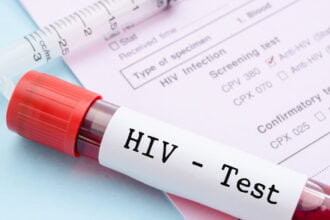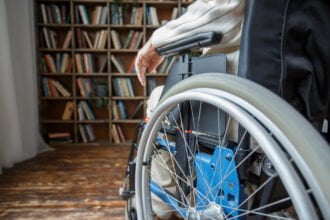
Stuart Scott accepting the Jimmy V Award
People live and people die every day with cancer. Often people deal with it silently. There are no headlines. No television tributes. And then there are people in the public eye. They develop cancer, too. Some use it for publicity, for wealth, for public sympathy. Others choose to continue to live their life with zest, as much as they can, to acknowledge they have cancer but not to dwell on it. Such was the style of one of America’s most popular sportscasters, Stuart Scott.
You may recall I blogged many months ago about Stuart, that other “Tar Heel,” a fellow graduate of UNC Chapel Hill and a veteran of the popular ESPN network. At that time, Stuart was using mixed martial arts to help keep him going as a father of two young girls, as a top broadcaster, and as a patient fighting cancer for the third time. (He was diagnosed in 2007 when the pain of what seemed to be appendicitis turned out to be cancer). His devotion to all three was featured in a story in The New York Times and had an indelible mark on the millions of sports fans who watched him night after night, many knowing the behind-the-scenes story of what he was going through (multiple surgeries and chemo).
Sadly, Stuart died January 4 at just age 49, and he is survived by daughters Sidni, 15, and Taelor, 19, who were the lights of his life.
As you can imagine, the sportscasters of ESPN were shaken at losing a colleague who had been with ESPN almost from the beginning, starting 21 years ago. And Robin Roberts from Good Morning America, a cancer survivor herself, hosted a touching ESPN video retrospective on Stuart’s life.
In watching and reading more about Stuart what comes through is the story of a unique man who did not let cancer stop him, not once, not twice, not three times from doing what he loved—sportscasting. His unique style and phrases made watching sports news coverage more fun. “Boo-Yah” was his creation as was “As cool as the other side of the pillow.” For me, though, and perhaps anyone touched by cancer, I will remember him most for what he said earlier in 2014 when he accepted the perseverance award from the Jimmy V Cancer Fund (named after NC State basketball coach Jimmy Valvano, who died of cancer). Just days after having more surgery for cancer and in a weakened state, Scott climbed the stairs to the microphone to tell a national television audience and hundreds in attendance: “”When you die, it does not mean that you lose to cancer,” Scott told the audience. “You beat cancer by how you live, why you live, and in the manner in which you live.”
Stuart Scott will be remembered for how he lived and why, and it was exemplary. For those of us living with cancer still, it can be a lesson heard loud and clear, and we can respond by hitting our ball out of the park and as we do, saying to Stuart, “Boo-Yah!”
I welcome your comments.






